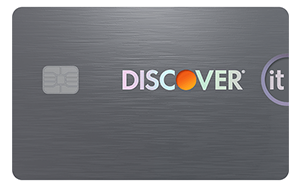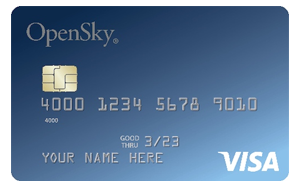Table of Contents
The Surge Mastercard® unsecured credit card offers a credit limit of up to $1,000 with instant approval for less-than-perfect credit holders, including borrowers with poor or fair credit scores. However, Surge cards come with pricey annual fees, monthly maintenance fees after the first year, and no rewards.
Quick Review
Surge Mastercard® is a credit card issued by Celtic Bank and serviced by Continental Finance.
It’s an unsecured credit card, meaning a security deposit isn’t required. With no money down, you can qualify for an initial credit limit of $300–$1,000, depending on your borrowing history. After 6 months, you can apply for a credit limit increase, which can as much as double your limit to $2,000.
As Surge Mastercard® reports to all three credit bureaus and offers free monthly credit reports, this card is good for people looking to build or repair their credit history.
Because of the high rate of approval and potential credit limit, Surge Mastercard® makes our list of best credit cards for bad credit as the best no-deposit option.
However, Surge Mastercard® charges an annual fee of $75–$99 for the first year, and $99 for every year after that. Additionally, after the first year, the Surge card charges a monthly maintenance fee of $0–$10. These fees are higher than most other cards.
The Surge credit card has an annual percentage rate (APR) of 24.99%–29.99% (variable). Again, this is higher than other starter cards, meaning you pay more year over year, even if you don’t pay anything up front.
Here are the major pros and cons of getting a Surge Mastercard® unsecured credit card:
Pros:
- No deposit required
- Free monthly credit scores
- Reporting to all three credit bureaus
- Credit limit increase available after 6 months
Cons:
- High APR
- High annual fee
- Potential monthly fees
Surge Mastercard® Unsecured Credit Card: Important Details
Basic Card Details
Rating Breakdown
Fees
3.0The fees on the Surge Mastercard® aren’t the absolute highest you’ll find among credit cards, but they’re quite steep considering you won’t get any rewards in exchange.
APR
2.4The higher-than-average APR on this card isn’t a surprise considering that it’s geared toward people with poor or fair credit, but it makes this card expensive to carry a balance on.
Rewards
1.0The Surge Mastercard® offers no rewards of any kind, netting it the lowest possible rating in this category.
Credit Reporting
5.0Surge Mastercard® accounts are reported to all three major credit bureaus, which makes this card suitable for building or repairing your credit.
Credit Limit
3.5The Surge Mastercard®’s initial credit limits are low, but you have the chance to increase (and even double) your credit line after you’ve had the card for 6 months.
Other
We manually boosted this card’s score in recognition of its high approval odds, free access to credit scores, and accessibility to people with bad credit without requiring a security deposit.
|
Annual
Fee
$75–$99 the first year, then $99 annually |
Credit
Score
300–669 |
|
Purchase
APR
24.99%–29.99% (variable) |
Why It's Great
- $0 Fraud Liability: You won’t be charged for unauthorized charges made on your Surge credit card.
- Credit reporting: Celtic Bank reports your payment history to all three major credit bureaus (TransUnion, Experian, Equifax), which helps quickly build credit.
- Credit score: Get a free monthly credit score (when you enroll in e-statements) to help you track your credit-building efforts
- Mobile app & online banking: Manage your payments and account information through a mobile app or the Online Banking Service.
- Grace period: Credit card issuers aren’t required to give a grace period. However, the Surge credit card offers a 25-day no-interest grace period.
Surge Mastercard® Unsecured Credit Card: Feature Breakdown
We’ll break down the need-to-know information about opening a Surge Mastercard® credit card. For more comprehensive details, read Celtic Bank’s Surge card terms and conditions.
Fees
As mentioned, a major argument against getting a Surge credit card is the high cost of fees. Here’s a breakdown of Surge credit card fees:
- Annual fee: $75–$99 for first year; $99 for second year and beyond
- Monthly fee: $0–$10/month starting in the second year
- Cash advance fee: 5% (minimum $5)
- Foreign transaction fee: 3%
- Late fee: $40
While Surge Mastercard® doesn’t require any money up front, you’ll end up paying a lot of money through fees and high APR.
Consider a secured credit card to pay less in fees
Many secured credit cards offer lower APR and fewer fees if you’re willing to pay a security deposit up front. Check out our list of best secured credit cards for options with less costly fees than the Surge credit card.
Interest Rates
- APR: 24.99%–29.99% (variable)
APR is the yearly rate of interest. The monthly interest rate is the rate charged on outstanding balances every day. At the end of each day, a percentage of your outstanding balance will be calculated and added to your total balance at the end of the billing cycle.
Grace period
The Surge credit card comes with a 25-day grace period, beginning the first day of the billing cycle.
If your bill is paid in full by the due date, purchases made during the grace period (first 25 days of the billing cycle) will not accumulate interest. If you carry a balance from the previous billing cycle, charges in the grace period will accumulate interest.
Cash Advance
You can take out a credit card cash advance (i.e., using your card at an ATM to take out cash) with a Surge Mastercard®, but beware of fees and interest. You’ll pay a 5% or $5 (whichever is higher) fee on each cash advance, and cash advances are exempt from the grace period. Therefore, you’ll pay interest on your cash advance no matter what.
Note that you won’t be allowed to take out a cash advance within the first 95 days of opening an account.
Easy Apply & Approval
One of the major benefits of the Surge Mastercard® is the easy application and high approval rate. Most people who apply are instantly approved for their new credit card.
How to Apply
- Online: Go to https://www.surgecardinfo.com/
- On the phone: Call (866) 513-4598
- By mail: Return the acceptance certificate from the pre-selected offer you received in the mail.
Here’s the information you’ll need to provide when applying for a Surge credit card:
- Full name as it appears on government documents
- Social Security number
- Date of birth
- Physical address (P.O. box will not be accepted)
Once you’ve applied, you’ll likely be approved within seconds. If Celtic Bank has trouble verifying your identity, your application may take up to 30 days to get approved.
Upon approval, your card will be mailed to you within three business days.
Pre-approval
You can be pre-approved for a Surge Mastercard® credit card. Being pre-approved for the Surge Mastercard® credit card is better than independently applying for one, as it won’t impact your credit score.
Applying for a credit card can knock points off your credit score
If you apply for a credit card without pre-approval, the lender will perform a hard inquiry, which will take a few points off your credit score.
If you’ve been pre-approved for a Surge Mastercard® credit card, you should have received an offer letter in the mail. To accept the offer, fill in the acceptance certificate and mail it to the return address.
Building Credit
Continental Finance reports your payment history to all three major credit bureaus: Experian, Equifax, and TransUnion.
Credit reporting is an important part of building credit, as your credit report is updated based on the information provided by your lenders. Lenders aren’t required by law to report your credit history, and many lenders choose to only report to one or two of the major credit bureaus, if at all.
In addition, Continental Finance offers Surge credit card users one free credit report every month. It’s important to check your credit score to monitor its progress and to keep an eye out for reporting errors.
Dispute errors on your credit report
If you sign up for a Surge credit card and have access to a monthly credit report, check it regularly for mistakes and dispute any errors you find on your report by sending a credit dispute letter to the bureaus.
Note that you will only have access to your monthly free credit report if you sign up for electronic statements. 1
Customer Service
You can contact the Continental Finance customer service team regarding your Surge card by logging into your online banking account, or reaching out to the following:
- Phone number: (866) 449-4514
- Mailing address:
Surge Card
P.O. Box 3220
Buffalo, NY 14240-3220
Making Payments
You have multiple options for paying off your Surge credit card. We recommend signing up for the online banking service directly after activating your card, so you can manage payments and easily access your account details.
Here are all the ways you can pay your Surge credit card:
- Online: Enroll in online banking, then use the mobile app or desktop platform to view your monthly statements and manage your card.
- Phone: (866) 513-4598. 7am–10pm ET Mon–Fri, 8am–4pm Saturday
- Mail: Mail the check and payment coupon from your monthly statement to:
Surge Card
P.O. Box 6812
Carol Stream, IL 60197-6812
Should You Get the Surge Mastercard® Unsecured Credit Card?
FinanceJar verdict
No, you should not get the Surge Mastercard®. While the Surge credit card is appealing based on its high approval potential and $0 deposit, there are better credit cards for bad credit holders that won’t cost an arm and a leg in fees and interest.
However, if you’re committed to putting down $0 up front, the Surge Mastercard® unsecured credit card is the best option for no deposit.
Who is this card for?
The Surge Mastercard® credit card is best for:
- People with bad credit: Surge credit cards are available to all credit holders, making it a good credit card for people with no credit or bad credit, as you’ll most likely be approved for a card.
- People trying to build credit: Because the Surge card is available to less-than-perfect credit holders and reports to all three credit bureaus, the Surge credit card can be a helpful tool to those trying to build a credit history or repair bad credit.
Comparable Cards
See how the Surge Mastercard® unsecured credit card compares to other options for poor-to-fair credit holders.
Surge Mastercard® vs. Indigo® Platinum Mastercard®
Rating Breakdown
Fees
3.2The annual fee on the Indigo® Platinum Mastercard® ranges from $0–$125, earning this card a mediocre rating in the Fees category.
APR
2.7Like many other unsecured cards for people with poor or limited credit, the Indigo® Platinum Mastercard® has a relatively high purchase APR.
Rewards
1.0Since the Indigo® Platinum Mastercard® doesn’t come with any rewards, such as cash back, it earns the lowest possible score in this category.
Credit reporting
5.0The card issuer will report your activity on the Indigo® Platinum Mastercard® to every major credit bureau, making this card well suited to credit building.
Credit limit
3.0The Indigo® Platinum Mastercard® comes with a credit limit of $300–$2,000. In contrast to many cards, you can’t increase your credit limit by using the card responsibly.
Other
We gave this card’s score a slight boost for being available to bad-credit borrowers without requiring them to pay a security deposit.
|
Annual
Fee
$0–$125 |
Credit
Score
300–669 |
|
Purchase
APR
24.90%–29.90% (fixed) |
At a Glance
The Indigo® Platinum Mastercard® credit card can help you rebuild your credit, but it may come at a cost. This card has annual fees that vary between $0–$125, depending on your creditworthiness, and features credit limits between $300–$2,000.
The Surge Mastercard® and Indigo® Platinum Mastercard® are very similar credit cards. Both cards don’t require security deposits, and both come with high annual fees.
While the Surge credit card has a variable annual fee between $0–$99 the first year, and a fixed annual fee of $99 after the first year, the Indigo® credit card maintains a variable $0–$99 annual fee year after year. The Indigo® Platinum card also doesn’t have monthly maintenance fees like the Surge card.
However, the Indigo® Platinum credit card only offers a credit limit up to $300. With a high annual fee and low credit limit, Indigo® Platinum Mastercard® is even worse than Surge Mastercard®.
Surge Mastercard® vs. Discover it® Secured Credit Card
Rating Breakdown
Fees
4.9No annual fee and no foreign transaction fees score this card a high rating in the fees department.
APR
2.7Carrying a balance could get costly on this card, given the high purchase APR.
Rewards
4.4Considering it’s a secured card, the Discover it® Secured offers impressive rewards and even a cashback welcome bonus.
Credit Reporting
5.0Discover reports to the major credit bureaus, which can help you build your credit.
Security Deposit
4.0The minimum and maximum security deposit allow a good range of flexibility for you to determine your credit limit.
Other
We adjusted for factors like free credit scores and a fully refundable security deposit.
|
Annual
Fee
$0 |
Credit
Score
300–669 |
|
Deposit
$200–$2,500 |
Purchase
APR
25.99% (variable) |
At a Glance
The Discover it® Secured is one of the best credit cards for borrowers with poor credit or no credit history. Unlike most credit cards in this range, it offers cashback rewards, a welcome bonus, and no annual fee.
Rewards
-
Welcome Bonus
Cashback Match earns you a dollar-for-dollar match on your first-year rewards
-
Gas & Restaurants
2% cash back up to $1,000 in combined spending each quarter
-
Everything Else
1% cash back on all eligible purchases
If you’re willing to pay a security deposit, we highly recommend the Discover it® secured credit card—one of the best secured credit cards for building or repairing credit.
Like with the Surge card, all credit holders can apply for a Discover it® card, including those with bad or no credit. Discover also reports your payment history to the three major credit bureaus, making it a good credit-building card.
The major differences between the Discover it® credit card and the Surge Mastercard® credit card are:
- Your Discover it® initial limit will be the same amount as your refundable security deposit ($200).
- Discover it® has a 25.99% (variable) APR.
- Discover it® doesn’t have annual or monthly fees.
- Discover it® offers cashback rewards.
Surge Mastercard® vs. OpenSky® Secured Visa® Credit Card
Rating Breakdown
Fees
4.6The OpenSky® Secured Visa® does well in the fees category thanks to the low annual fees.
APR
3.3The OpenSky® Secured Visa® has reasonable interest rates on purchases and cash advances, especially compared to other cards for this credit range.
Rewards
1.0Because this card doesn’t give you any returns for your spending, it gets the lowest possible score in the rewards category.
Credit Reporting
5.0The OpenSky® Secured Visa® reports to all three credit bureaus, so it gets top marks for credit reporting.
Security Deposit
4.0The OpenSky® Secured Visa® allows you to put down as little as $200 or as much as $3,000, so there’s a reasonable amount of flexibility about how much security deposit you pay (and credit limit you get in return).
Other
We bumped up the score a bit for this card because of its good accessibility, since it has high approval odds and is available to borrowers with no credit history.
|
Annual
Fee
$35 |
Credit
Score
300–669 |
|
Deposit
$200–$3,000 |
Purchase
APR
21.14% (variable) |
At a Glance
The OpenSky® Secured Visa® is a less expensive option than many other credit cards for bad credit holders or new borrowers. However, it requires a security deposit and a $35 annual fee. On the plus side, it doesn't require a credit check to qualify.
Like the Surge credit card, an OpenSky® credit card is a good option for borrowers who have no credit or poor credit and want to improve their credit score. Unlike the Surge card, OpenSky® requires a down payment of $200.
If you’re willing to put down some money up front, the OpenSky® credit card offers:
- Instant approval with no credit check
- $200 credit limit
- 21.14% (variable) APR
- $35 annual fee
While you’ll need to pay more initially for the OpenSky® credit card, it will likely cost less than a Surge Mastercard® over time because of its low fees and APR.
How we rate our starter credit cards
Applying for a new credit card is a big decision. That's why FinanceJar's card experts carefully studied the following details of the Surge Mastercard® to determine whether or not it's a good choice:
- Account Reporting to Major Bureaus
- Annual, Maintenance, and Late Fees
- Credit Limits
- Interest Rates
- Credit Score Required
- Deposit Required
- Payment Process
These factors, among many others, are part of our 5-star credit card rating methodology for all card categories. Our star ratings are unbiased and independent of our affiliates and advertisers.










